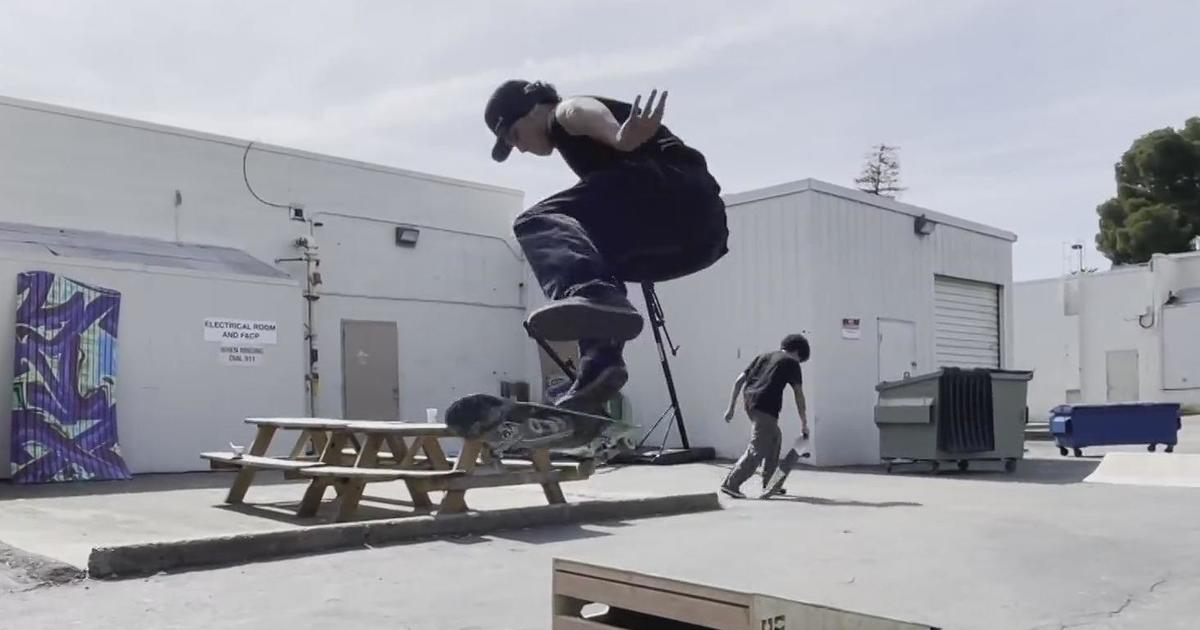Youth Martial Art Sparks Safety Concerns In Calif.
SACRAMENTO, Calif. (AP) — The Internet video shows two elementary school-age children, wearing athletic clothes and protective gear on their shins, sparring and wrestling in an enclosed ring. There's an audience looking on as the young fighters weave and jab, striking each other repeatedly.
The clip caught the attention of the California State Athletic Commission and a state lawmaker earlier this summer, prompting concerns about the safety of young people competing in the ancient form of martial arts known as pankration.
Pending legislation from Assemblywoman Susan Bonilla, D-Concord, would authorize the athletic commission — which already oversees full-contact boxing, kickboxing and mixed martial arts for adults — to establish regulations for youth pankration competitions.
Yet some coaches and parents are wary of the legislation, which they say is too vague and could restrict competition. They say the sport has been misrepresented as more dangerous than it actually is.
Pankration, which has dramatically grown in popularity in California during the last decade, combines skills from karate and jiu-jitsu. It traces its roots back to ancient Greece, where the only rules for the sport styled from boxing and wrestling prevented competitors from biting or gouging each other's eyes.
While the sport has evolved and includes a set of safety-conscious rules, the recent popularity spike and resulting media attention have caused skepticism among California officials about the welfare of young competitors. The athletic commission halted competitions in July so officials can examine whether a minimum age should set for participation and other standards.
"To my eyes, there is clearly a great deal of contact happening," Bonilla, chairwoman of the committee that oversees the athletic commission, said of the video that was sent to her. "I certainly felt that there seemed to be risk factors there for the children participating and that through some standardized regulations we could ensure the safest environment possible."
Her bill, AB1186, specifically excludes light contact karate, tae kwon-do and judo from receiving additional oversight. Athletic commission officials say they are not aware of other states that have established regulations for youth pankration.
The legislation could come up for a vote by the full Senate this week and, if approved, would head back to the state Assembly for a final vote before it could go to the governor's office.
Andy Foster, executive director of the state athletic commission and a former martial arts competitor, said in an interview that the commission is not seeking to shut down the sport. Instead, commissioners are mulling whether there should be some minimal requirements, such as insurance, physicals for competitors and having a doctor on site, he said.
"This is not mixed martial arts, but it is mixed martial arts' little cousin," Foster said. "It's probably not appropriate for a 5-year-old to be doing it."
Commission officials said they do not have data about injuries that might be related to the sport.
Jon Frank, who volunteers as president of the United States Fight League, which organizes pankration events in California, said his group has statistics from emergency medical technicians at 15 events since 2011. Those figures show 39 of the 844 young people competing received medical treatment. All were treated on scene, most for minor injuries that did not require follow-up care.
Parents and coaches say the sport has been misunderstood. They say national and international groups regulating the sport privately have set stringent rules that prohibit blows to the head and already require event organizers to have insurance coverage and doctors to be on hand.
Frank said the Internet video that prompted Bonilla's bill was edited to make the event appear more aggressive. In competition, referees stop any inappropriate contact immediately, he said.
"We look for maliciousness," Frank said. "If they are winding up and have anger in them, it gets stopped and resolved."
As her children warmed up for a martial arts class in Sacramento on a recent afternoon, Lyndsey Bean said some of her family members did not have a positive view of martial arts when her children took up the sport last year. Since then, she said she has seen their attitudes begin to change, along with noticing improvement in her daughter's school performance.
"It's safer than most sports," said Bean, as she stood alongside the mat with other parents watching her 10-year-old daughter and 12-year-old son. "How do you say no to kids who want to do physical activity?"
Frank and others involved in pankration events say they are concerned about how "full contact" martial arts will be defined in the legislation. He also worries about issues with hosting competitions or sending competitors to national and international events if another martial arts organization is allowed to regulate the sport on the commission's behalf instead of their current governing body.
Bonilla says her bill allows for coaches and organizers to raise any concerns with the athletic commission as it establishes regulations.
While state officials work out the next steps for managing pankration competitions, young martial artists can continue practicing their skills, which both coaches and state officials say can be extremely rewarding.
"Martial arts saved me and saved other kids for a bunch of reasons," Frank said. "It takes the aggressive kids and tones them down, and it takes the shy ones and brings them up."
Copyright 2013 The Associated Press. All rights reserved. This material may not be published, broadcast, rewritten or redistributed.



